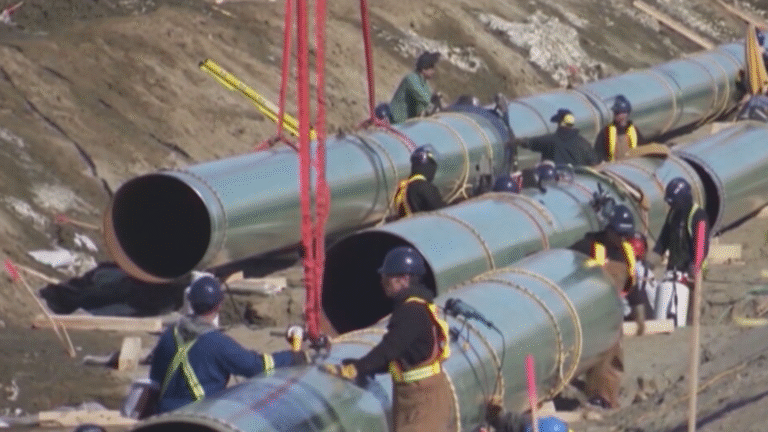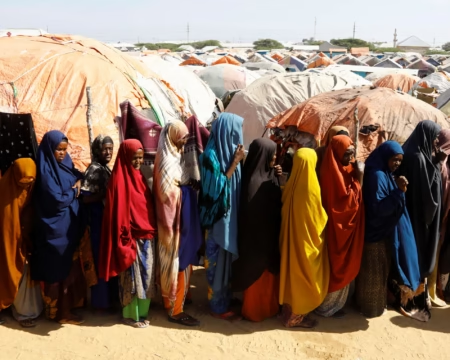Prime Minister Mark Carney’s government is preparing to announce its first wave of national interest projects, and according to multiple sources, no oil pipeline projects have made the list. The decision, revealed by Radio-Canada, is already sparking disappointment in Alberta, where Premier Danielle Smith has pushed hard for pipeline development as part of the country’s energy strategy.
“There is no pipeline project on the table,” one source confirmed, despite repeated federal promises to position Canada as an “energy superpower.” Carney himself has not ruled out the idea of supporting new Canada pipeline projects, noting during the election campaign that major infrastructure choices would be guided by consensus with the provinces. Behind the scenes, Liberal insiders stress that while pipelines are excluded from this first tranche of projects, the door is not completely closed to future proposals, including natural gas developments, if private developers come forward.
Smith has consistently argued that an oil pipeline should be among the first projects approved, particularly a line connecting Alberta’s oilsands to northern British Columbia. She discussed the issue with Carney earlier this summer, but the prime minister made clear that a private sector partner is essential for any project to proceed. So far, no company has stepped up to finance or build a new pipeline, a reality that has left Alberta frustrated with Ottawa’s regulatory environment.
In a statement, Smith’s office blamed federal policies such as the emissions cap on oil and gas and the tanker moratorium off British Columbia’s northern coast for discouraging investment. “Until these policies are changed, modified, or reversed, we will not attract the capital to keep our energy industry competitive and growing globally,” the statement read. The premier has warned that failing to include Canada pipeline projects on the national interest list will fuel investment uncertainty and undermine national unity.
The political stakes are high. Carney and Smith are set to meet again this week on the sidelines of the Liberal caucus gathering in Edmonton. Finance Minister François-Philippe Champagne, who has been in contact with Smith, emphasized that Ottawa wants to rebuild the country by fast-tracking strategic projects, and insisted that the process remains “evolving.” He suggested that more announcements could follow once the framework is in place.
For the Liberal government, the absence of pipeline projects could also serve to reassure its progressive wing, which has pushed for stronger climate action. Some Liberal MPs are forming a new environmental caucus to keep climate issues front and center. Carney’s early moves in office have sent mixed signals: he abolished carbon pricing for consumers, passed Bill C-5 to streamline environmental assessments for major projects, and suspended minimum sales thresholds for zero-emission vehicles. The balance between economic growth and climate commitments remains delicate as Canada approaches its 2030 emissions targets.
Pipelines remain a politically charged issue in Canada. The Trans Mountain expansion, completed earlier this year after years of delays, ballooned from an initial $21 billion estimate to more than $34 billion. The Trudeau government had purchased the project from Kinder Morgan in 2018 for $4.7 billion when the company withdrew due to opposition in British Columbia and regulatory uncertainty. That history has left both investors and governments wary of taking on new projects.
Opposition leader Pierre Poilievre seized on the news, arguing that excluding pipelines from the national list will continue forcing Canada to sell its oil to the United States at a discount. In a statement, he accused Carney of maintaining Liberal-era restrictions such as the shipping ban, production cap, and industrial carbon tax, which he said have driven billions of dollars in investment south of the border. “The champagne will be pouring at the Trump Tower when they get the news,” Poilievre wrote.
For now, Carney is signaling that Thursday’s announcement will represent only the first set of national interest projects, leaving the possibility open for future rounds. His government is betting that a gradual, consensus-driven approach will balance regional demands, environmental priorities, and investor confidence. Whether that strategy can bridge the widening divide over Canada pipeline projects remains an open question.







